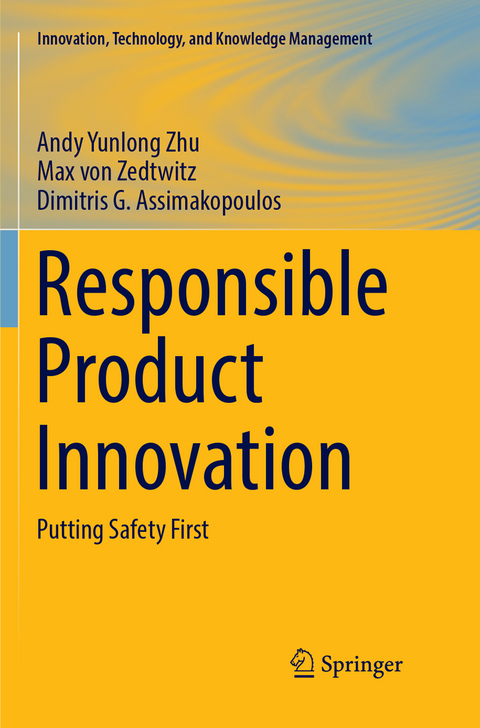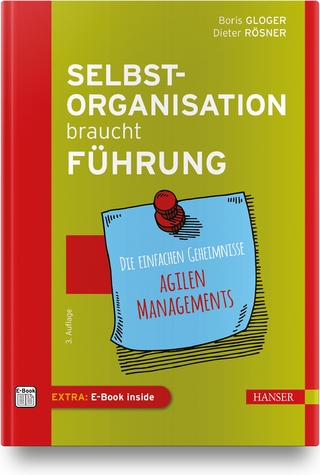
Responsible Product Innovation
Springer International Publishing (Verlag)
978-3-319-88605-3 (ISBN)
This book analyses the relationships among product safety strategy and culture, concurrent engineering, new product development (NPD) processes and product safety performance. Product safety is a matter of enormous economic and societal concern, given the safety risks to consumers and the financial risks to producers. Nevertheless, a thorough conceptual understanding of the effects of NPD policies and practices is still largely missing, as several large-scale trends have made clarifying the role of product safety in its socio-economic context difficult, including: the rise of consumerism and the shift in the balance of power from manufacturers to customers and regulators; the internationalization of value chains and the fragmentation of markets worldwide; and technological change leading to a sophistication of products that rendered average consumers increasingly unaware of risk and potential accidents.
This volume sets out to close the gaps among research, practice and policy, with an emphasis on advocating responsible product innovation. Through an in-depth study of the durable juvenile products industry, the authors discover important relationships, for example that top management involvement, safety-first culture and robust NPD processes are paramount in increasing product safety and decreasing product recalls in firms. On the other end of the spectrum, concurrent engineering does not automatically lead to product safety, they found no "magic bullet" through which product safety can be tied to the use of a particular tool, skill, or practice. Offering a dynamic framework for aligning the interests of multiple stakeholders, including manufacturers, regulators, and consumers, the authors provide a clearer understanding of product safety and its implications for scholars, students, policy makers, and practitioners in the areas of innovation management, product management, R&D management, and responsible research and innovation.
Andy Yunlong Zhu is a Senior Vice President at Goodbaby International Holdings Ltd, the Co-Chairman of ISO/PC 310 (a technical committee to establish international standards for juvenile products) and an adjunct professor at the Nanjing University MBA center and Jiangsu Science and Technology University. He earned his DBA from Grenoble Ecole de Management, an MBA from Southern Illinois University Carbondale and a BSc from Shanghai Jiaotong University. He won second prize in the 2012 EDAMBA (European Doctoral Programmes Association in Management and Business Administration) doctorate thesis competition. He is a certified Six Sigma Black Belt, Lead Auditor for ISO9000 and Assessor for National Quality Award. He has held various executive leadership positions in MNCs in different industries in R&D, quality, operations and general management. His research focuses on R&D and innovation management, quality and product safety management, and operations management. He has published widely in academic and practitioner journals, such as the International Journal of Production Economics. Max von Zedtwitz is Professor of International Strategy and Innovation at Kaunas University of Technology in Lithuania, and Director of the GLORAD Center for Global R&D and Innovation, a research organization with centers in China, the U.S., Brazil, and Europe. He was previously on the faculty of Tsinghua, Peking University, Skoltech, and IMD, and also held positions as Vice President of PRTM Management Consultants, and as President of AsiaCompete Ltd. He has published widely in academic and practitioner journals, including 13 books, and was recognized by IAMOT as one of the fifty most influential innovation scholars worldwide. A frequent public speaker, he has appeared on radio and television, and has been cited in The Economist, China Daily, the South China Morning Post and the New York Times. Dimitris G. Assimakopoulos is a Professor of Information Systems, Technology and Innovation Management at EM-LYON (EML) Business School and Founding Director of the EML Global Doctorate of Business Administration (DBA). He also serves as the President of the European Doctoral Association in Management and Business Administration (EDAMBA), a faculty at the European Institute for Advanced Studies in Management (EIASM), and Board Member for the EFMD European Quality Link (EQUAL). Prior to joining EML, he worked as a Professor, Associate Dean for research and DBA Director at Grenoble Ecole de Management. Dimitris has been educated in civil engineering, architecture, planning and economic sociology in Greece, UK, France and the USA. He has also been a European Commission `Marie Curie' ESR and principal investigator, a visiting scholar in sociology and the Asia Pacific Research Center at Stanford University (U.S.A.), as well as a visiting professor at universities in the U.K. (Durham, Newcastle) and China (Sun Yat Sen, Tongji). Dimitris has led or participated in several multi-million-euro projects with world-class organizations such as CERN, Fraunhofer ISI and Airbus. He has published more than a hundred publications including 12 books and special issues; and articles in scholarly and professional journals such as Computers and Operations Management, Environment and Planning B, International Journal of Information Management, International Journal of Production Economics, International Journal of Technology Management, International Small Business Journal, Organizational Dynamics, Prometheus: Critical Studies in Innovation, R&D Management, Science and Public Policy, and MIT Sloan Management Review. Teaching has varied focusing early on business geographics and management information systems (MIS), and more recently on doctoral studies; he also supervised the successful completion of eighteen PhD and DBA theses. He also initiated, taught and co-ordinated the EIASM Eden SNA (Social Network Analysis) doctoral seminar with colleagues from Bocconi University, UC London and MIT Sloan.
Chapter 1: INTRODUCTION: BETTER SAFE THAN SORRY.- Chapter 2: LITERATURE REVIEW.- Chapter 3: CONCEPTUAL MODEL AND HYPOTHESES.- Chapter 4: METHODOLOGY.- Chapter 5: QUANTITATIVE RESULTS.- Chapter 6: QUALITATIVE RESULTS.- Chapter 7: DISCUSSION.- Chapter 8: IMPLICATIONS AND RECOMMENDATIONS.- Chapter 9: CONCLUSIONS AND LIMITATIONS.-
| Erscheint lt. Verlag | 1.9.2018 |
|---|---|
| Reihe/Serie | Innovation, Technology, and Knowledge Management |
| Zusatzinfo | XXXI, 150 p. 21 illus., 19 illus. in color. |
| Verlagsort | Cham |
| Sprache | englisch |
| Maße | 155 x 235 mm |
| Gewicht | 290 g |
| Themenwelt | Wirtschaft ► Betriebswirtschaft / Management ► Projektmanagement |
| Wirtschaft ► Betriebswirtschaft / Management ► Unternehmensführung / Management | |
| Schlagworte | New Product Development (NPD) • Organizational Culture • product innovation • Product Safety Managment • Product Safety Performance • Quality Control, Reliability, Safety and Risk • Responsible Research and Innovation (RRI) |
| ISBN-10 | 3-319-88605-3 / 3319886053 |
| ISBN-13 | 978-3-319-88605-3 / 9783319886053 |
| Zustand | Neuware |
| Haben Sie eine Frage zum Produkt? |
aus dem Bereich


